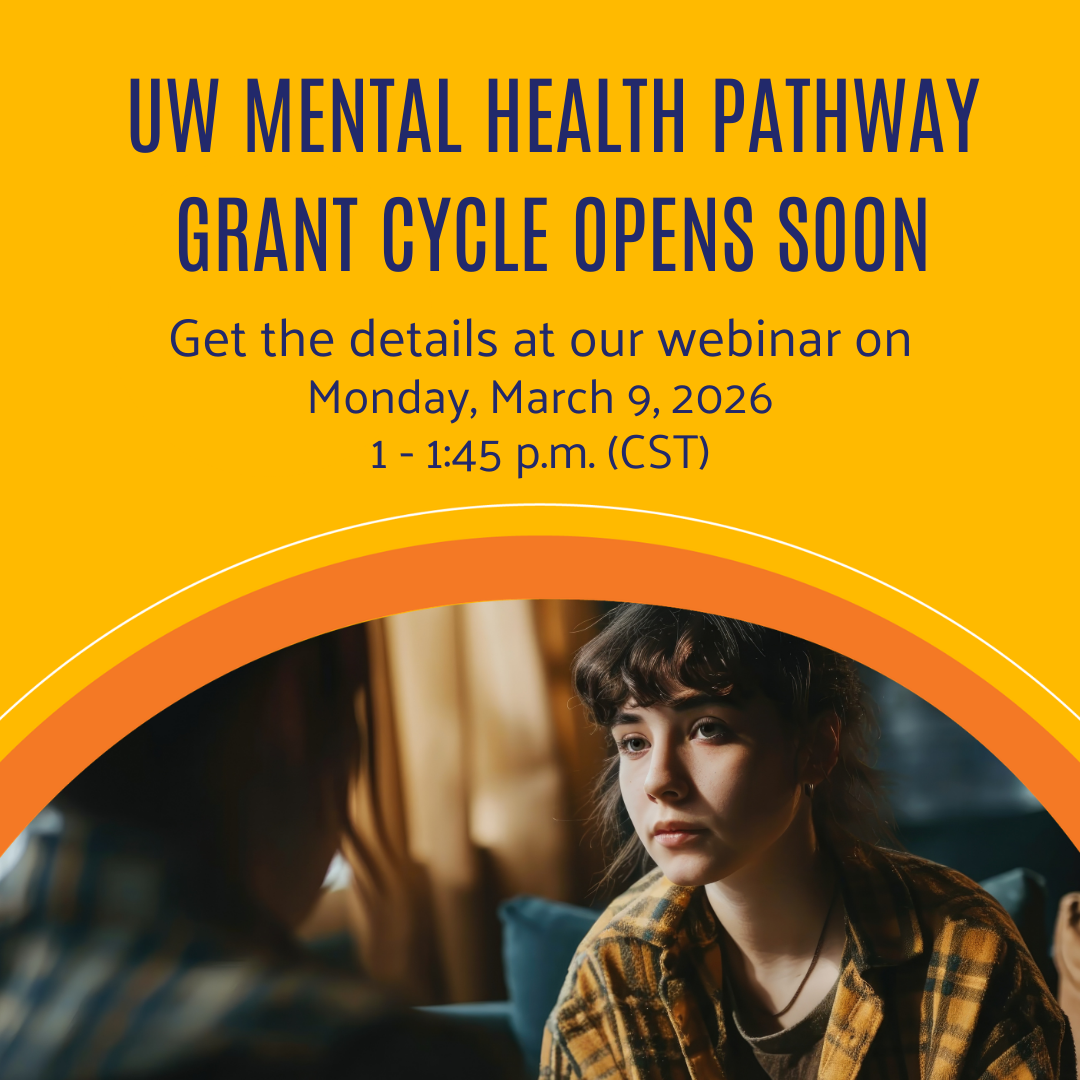The Challenge
“The evidence is strong for a causal relationship between poverty and mental health. However, findings suggest poverty leads to mental health and developmental problems that, in turn, prevent individuals and families from leaving poverty, creating a vicious, intergenerational cycle of poverty and poor health.”
– Simon, et al., Psychiatric Times (2018)
Although people who have a lower income are associated with a higher risk for mental health challenges, several barriers prevent many from accessing care. Financial barriers, logistical challenges, and the long-standing stigma associated with mental health problems are just a few reasons low-income populations may not receive the treatment they need.

Mental Health Pathway Grant
The Mental Health Pathway Grant cycle opens on March 9, 2026.
Join us for a webinar that day at 1 p.m. (CST) to learn the scope and priority for this competitive funding opportunity.
The full Request for Proposal (RFP) will be added here once it is available.
$568,995 Awarded in 2024 to Address Barriers to Mental Health Care
Barrier – Access to Affordable Direct Services
Catholic Charities’ award dollars will support a part-time, bilingual licensed social worker (LSW) for the outpatient counseling program and underwrite community language interpretation training for three staff members. These additions will increase the organization’s ability to serve Spanish-speaking clients of any age. A portion of this grant award will also offset the costs incurred from Catholic Charities’ sliding scale fee model.
United Methodist Youth Home will use Pathway Grant funds to expand their therapy program for at-risk youth to include those recently discharged from UMYH inpatient programs and youth in need of outpatient services to prevent court intervention.
Barrier – Strategies to Improve Mental Health
Success Through Mentoring received a Pathway Grant to underwrite one full-time position and expand mentoring opportunities further into Spencer County. The organization connects adult mentors to kids from lower-income, underserved communities.
Youth First will use their funds to support evidence-based youth mental health prevention programs in five EVSC schools with larger low-income populations. This work addresses critical, underlying challenges that improve mental health and break cycles of poverty.
